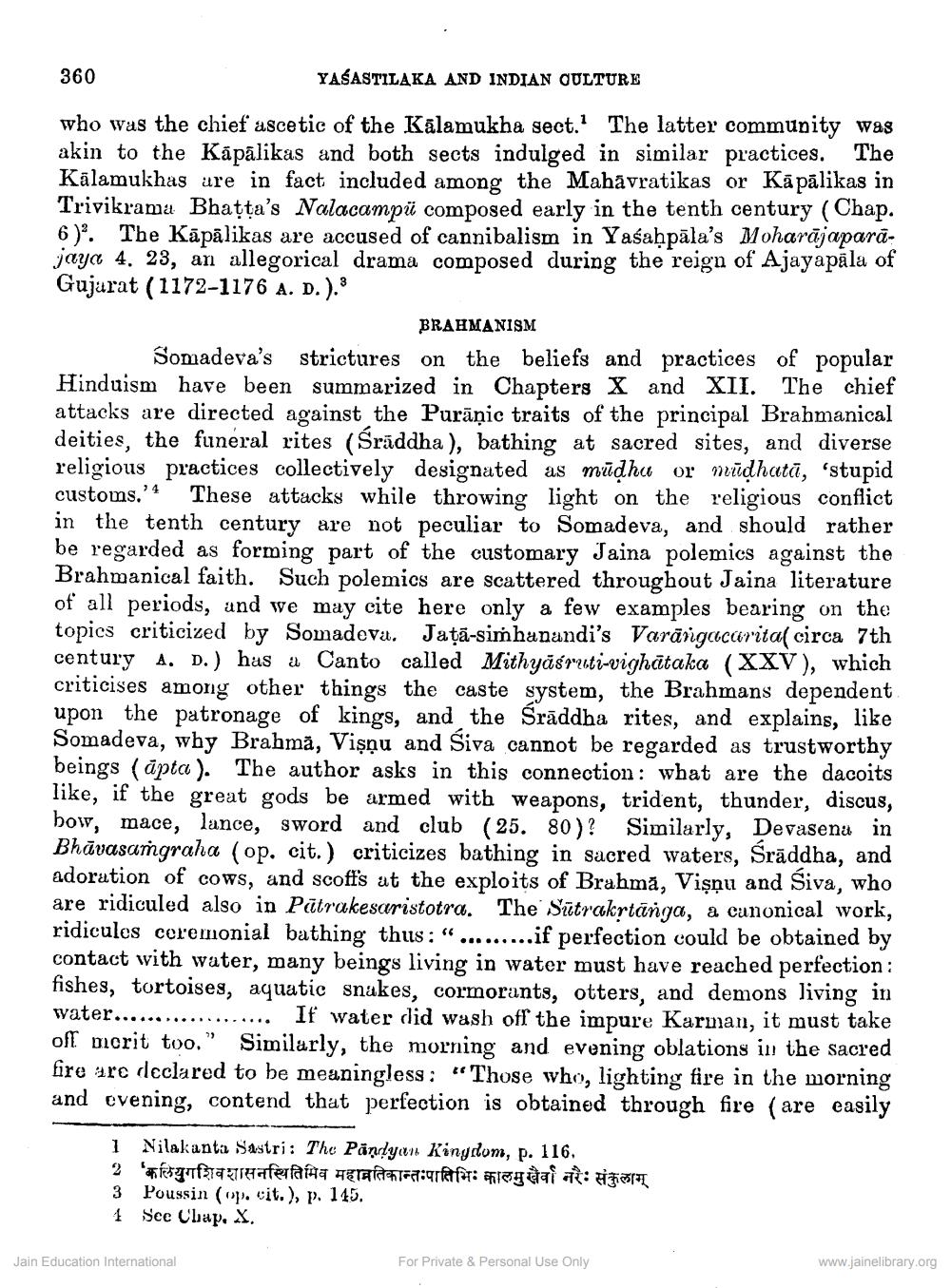________________
360
YAŠASTILAKA AND INDIAN CULTURE
who was the chief ascetic of the Kalamukha sect. The latter community was akin to the Käpālikas and both sects indulged in similar practices. The Kālamukhas are in fact included among the Mahāvratikas or Käpälikas in Trivikrama Bhatta's Nalacampü composed early in the tenth century (Chap. 6). The Kāpālikas are accused of cannibalism in Yasahpāla's Moharājaparājaya 4. 23, an allegorical drama composed during the reign of Ajayapäla of Gujarat (1172-1176 A. D.)3
BRAHMANISM Somadeva's strictures on the beliefs and practices of popular Hinduism have been summarized in Chapters X and XII. The chief attacks are directed against the Puranic traits of the principal Brahmanical deities, the funeral rites (Śrāddha), bathing at sacred sites, and diverse religious practices collectively designated as mūờhu or müdhatā, 'stupid customs.' These attacks while throwing light on the religious conflict in the tenth century are not peculiar to Somadeva, and should rather be regarded as forming part of the customary Jaina polemics against the Brahmanical faith. Such polemics are scattered throughout Jaina literature of all periods, and we may cite here only a few examples bearing on the topics criticized by Somadeva. Jatā-simhanandi's Varängacarital circa 7th century A. D.) has a Canto called Mithyāšruti-vighataka (XXV), which criticises among other things the caste system, the Brahmans dependent upon the patronage of kings, and the Srāddha rites, and explains, like Somadeva, why Brahma, Vişņu and Siva cannot be regarded as trustworthy beings (apta). The author asks in this connection: what are the dacoits like, if the great gods be armed with weapons, trident, thunder, discus, bow, mace, lance, sword and club (25. 80)? Similarly, Devasenu in Bhāvasangraha (op. cit.) criticizes bathing in sacred waters, Śrāddha, and adoration of cows, and scoffs at the exploits of Brahma, Vişņu and Siva, who are ridiculed also in Pätrakesaristotra. The Sütrakrtanga, a canonical work, ridicules ceremonial bathing thus: “..........if perfection could be obtained by contact with water, many beings living in water must have reached perfection : fishes, tortoises, aquatic snakes, cormorants, otters, and demons living in water....... ....... If water did wash off the impure Karman, it must take off merit too.” Similarly, the morning and evening oblations in the sacred fire are declared to be meaningless: “Those who, lighting fire in the morning and evening, contend that perfection is obtained through fire (are easily
1 Nilakanta Sastri: The Pandyan Kingdom, p. 116. 2 'कलियुगशिवशासनस्थितिमिव महाबतिकान्तम्पातिभिःकालमुखैा नरैः संकुलाम् 3 Poussin (op. cit.), p. 145. 4 See Chap. X.
Jain Education International
For Private & Personal Use Only
www.jainelibrary.org




